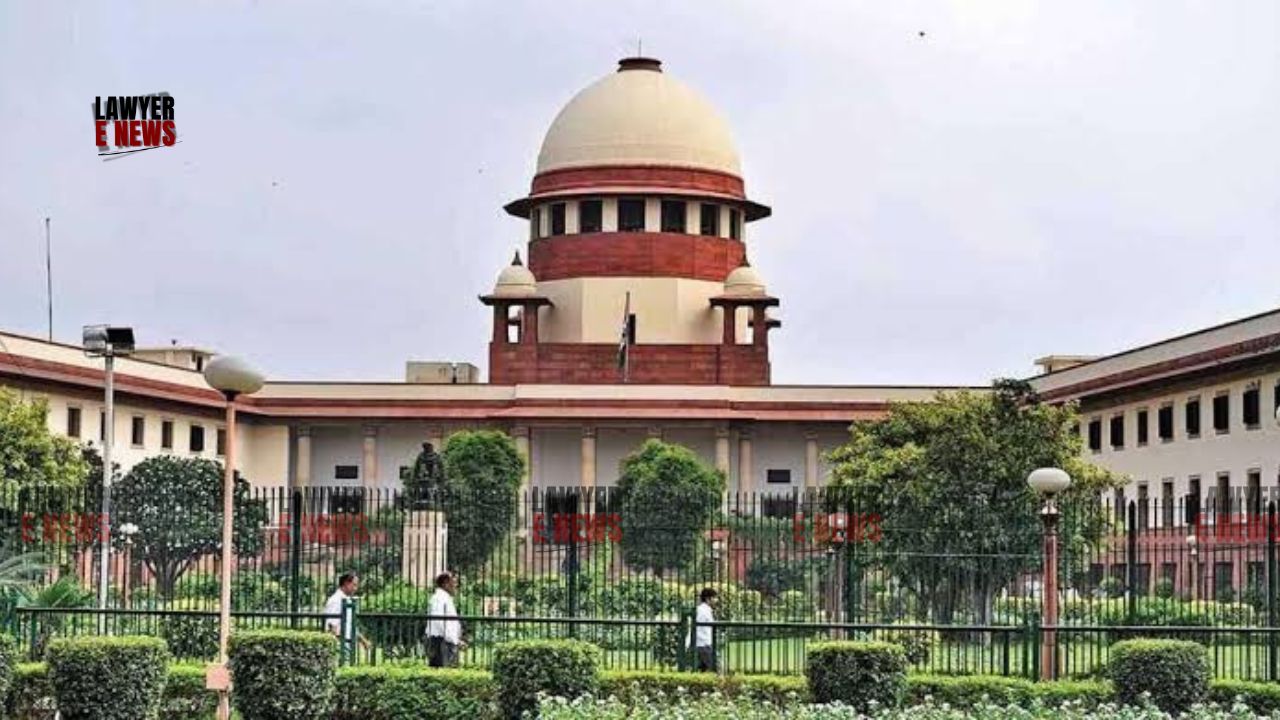-
by Admin
15 February 2026 5:35 AM



Supreme Court of India discharged three appellants from abetment to suicide charges under Section 306 of the Indian Penal Code (IPC). The Court ruled that the prosecution failed to establish a direct or proximate link between the alleged acts of harassment by the appellants and the suicide committed over a month later.
The Court emphasized that abetment to suicide requires clear evidence of instigation or aiding, coupled with a close temporal nexus between the alleged acts and the suicide. Absent such proximity and intent, mere harassment cannot constitute abetment under Section 306 IPC.
The appellants, Prakash Nagare (the husband of the deceased), his father, and his brother, challenged the Bombay High Court’s October 2022 dismissal of their writ petition seeking discharge from abetment to suicide charges.
The deceased, Jyoti Nagare, aged 25, was married to Appellant No. 1 in 2009. Following disputes, the couple began living separately in 2013, with Jyoti residing at her paternal house. On March 20, 2015, Jyoti was found hanging in the bathroom of her paternal home. While an Accidental Death Report was filed on the same day by her brother, an FIR was lodged five days later, alleging mental and physical harassment by the appellants, including an incident during a mahalokadalat on February 17, 2015, where Appellant No. 1 allegedly advised the deceased to remarry.
The trial court and High Court dismissed the appellants’ discharge applications, prompting the present appeal.
Key Issues Addressed by the Court
Does a significant time gap between the alleged acts and the suicide negate the proximate link required for abetment under Section 306 IPC?
What constitutes “instigation” or “abetment” under Sections 306 and 107 IPC?
Does mere harassment without evidence of intent or immediate provocation qualify as abetment to suicide?
Court’s Observations and Findings
The Court noted that the alleged instigation at the mahalokadalat occurred on February 17, 2015, whereas the suicide took place on March 20, 2015—a time gap of over a month. This, the Court held, broke the chain of causation between the alleged instigation and the suicide.
The Court relied on Sanju @ Sanjay Singh Sengar v. State of M.P. (2002), where a 48-hour gap between instigation and suicide was deemed sufficient to negate the nexus. The Court observed:
“The cardinal principle is that there must be a close proximity between the positive act of instigation and the commission of suicide. A gap of over a month dissolves this nexus, rendering the allegations of instigation unsustainable.”
Referring to Sections 306 and 107 IPC, the Court reiterated that abetment involves a mental process of instigation or intentional aiding. Mere harassment or discord does not amount to abetment unless it directly leads to the suicide.
The Court stated: “Abetment requires a deliberate act or continuous course of conduct by the accused, leaving the victim with no choice but to commit suicide. Without such mens rea, a charge under Section 306 IPC cannot be sustained.”
In this case, the prosecution failed to establish that the appellants intended to provoke or incite the deceased to commit suicide.
The Court observed that the Accidental Death Report, filed immediately after the incident, did not mention any harassment or instigation by the appellants. The allegations of harassment were introduced for the first time in the FIR, lodged five days later.
The Court noted: “Such delay and subsequent embellishments in the FIR diminish the credibility of the prosecution’s case. The inconsistencies regarding the date of the mahalokadalat further weaken the allegations.”
The Court emphasized that mere allegations of harassment, unconnected to the act of suicide, do not meet the threshold for abetment under Section 306 IPC.
Referring to Ramesh Kumar v. State of Chhattisgarh (2001) and S.S. Chheena v. Vijay Kumar Mahajan (2010), the Court stated:
“A word uttered in a fit of anger or discord in domestic life, without intent to provoke suicide, cannot constitute abetment. Human behavior varies, and ordinary discord cannot be stretched to imply abetment unless the harassment is of such a nature as to compel the victim to take their own life.”
The Court allowed the appeal and passed the following directions:
The orders of the High Court and the trial court rejecting the appellants’ discharge applications were quashed. The appellants were discharged from Sessions Case No. 75 of 2015 pending before the Assistant Sessions Judge, Sangamner. Bail bonds, if any, stood cancelled.
The Court concluded: “While the death of a young woman is unfortunate, the absence of material to show a clear intention or proximate instigation by the appellants makes the continuation of criminal proceedings an abuse of law.”
This judgment reinforces the principle that proximate cause and intent are essential ingredients for abetment to suicide under Section 306 IPC. It establishes that:
Time Gap Negates Abetment: A significant time gap between the alleged act and suicide weakens the nexus required for abetment.
Mens Rea is Crucial: Without intent to provoke or incite, mere harassment or discord does not suffice.
Delayed FIRs Diminish Credibility: Delay in lodging FIRs, coupled with embellishments, undermines the prosecution’s case.
This ruling safeguards individuals from baseless abetment charges, ensuring that allegations of harassment are subjected to rigorous scrutiny.
Date of Decision: December 20, 2024
